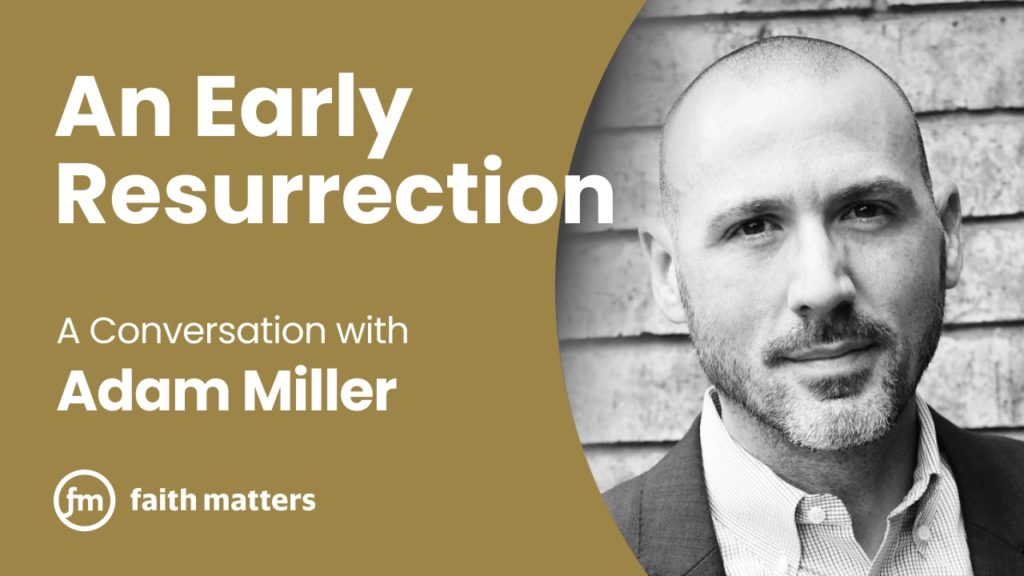Jessica Brown lives in a Midwest university town with her husband. They have 5 kids in the teenager-young adult stage of life. She graduated from BYU with a teaching degree in History and has been a stay-at-home-mom for most of her married life.
She loves to read, work in the yard, explore new places, and is currently working on becoming a more confident bike rider. When she dies her children have instructions to donate her body to science, and then to buy a bench, place it somewhere in nature with a beautiful view and put a plaque on it that says, “In memory of Jessica Brown. She never wanted to be put in a box.”
Jessica grew up reading the autobiography of her great-great-grandmother, Lorena Larsen, a plural wife. She feels her early exposure to the good, bad, and ugly of plural marriage (particularly in the words of a woman affected by it) gave her a different perspective than many.
For many, “plural wife” evokes images of naive women who have been deceived, pressured, and oppressed. Plural marriage is a topic we often avoid these days, hoping that if we ignore it, then we won’t have to worry about it. The silence born of shame and embarrassment grows into pity as we become further removed from our church’s history of plural marriage.
In many ways, the few generations of women who lived in and amongst plural marriages are the lost generations of the LDS Church. We tell the story of strong women in the early church who were faithfully baptized, fled from place to place, lost children and husbands and homes but still retained their testimonies as they sacrificed to build temples amidst great persecution. But, we don’t often talk about and share the stories of women after plural marriage became a doctrine of the Church in the 1840s.
Some women in the Church of Jesus Christ of Latter-day Saints feel helpless when they think about plural marriage. It can be easy for them to assume their marital status in heaven is subject to the whims of men. Men announced the doctrine. Men defined and taught the doctrine. Men decide when and who they’ll marry and be sealed to. The pain of plural marriage often comes from the sense that men and women are unequal in God’s eyes because of the disparity in doctrine and current policy.
Renouncing plural marriage sounds like an easy solution to this uncertainty. But, it’s worth exploring the side effects that would ripple in all directions in the push to get rid of this doctrine that can be so uncomfortable. Renouncing plural marriage would require more than just saying, “it was a mistake and no longer exists.”
Look Before We Leap
What would be the effects of a blanket renunciation of polygamy, past, present and future? There are many implications.
All plural marriages would presumably need to be annulled if the practice is deemed invalid. This affects marriages formed while plural marriage was an active, lived doctrine in the church and also any formed as a result of our current policy. So what happens to all those sealings?
Are all annulled except the sealing to the first wife?
What if that sealing is not one both members of that couple would choose? And, to whom would the other wives now be sealed? If those women’s sealings are annulled, then are their children and grandchildren no longer sealed to anyone? Perhaps it will be similar to current policy, and any children from 2nd+ marriages will be born under the covenant of the first marriage.
It seems easier to simply leave all plural marriages intact for anyone who is dead and let it be resolved in heaven, which is what we currently do. That’s probably the preferred solution of many, if they think about effects on past marriages.
However, we’d still need to acknowledge the future effects of declaring plural marriage non-existent.
A doctrine of eternal monogamy would equalize the current policy for men and women, but perhaps not in a positive way. Surviving spouses, if they remarry, would presumably have the right to choose whether to stay sealed to their dead spouse or annul that sealing and be sealed to their 2nd spouse. This might, for example reassure a dying wife that she won’t be forced to live as a plural wife in heaven. But she would also be faced with the prospect that her spouse might decide to be sealed to the new wife. Uncertainty about who we’ll be sealed to eternally would still exist. The pain would just be evenly spread between women and men, since anyone who remarries would need to choose one spouse for eternity and reject the other.
Rather than moving forward with a policy of eternal monogamy on earth and in heaven, we could equalize current policy so living women can be sealed to more than one man. We already follow this policy post-death. Are we sure this is the right decision for everyone? Deciding across times and cultures that we know exactly what is right for everyone is exactly the kind of paternalism renouncing plural marriage is supposed to be opposing. Can we be sure that no one would choose to be in a plural marriage in heaven?
My mother, for instance, is sealed to a man whose beloved wife of 46 years passed away from cancer. My mother feels loved and cherished by her husband, even while knowing he loves and misses his first wife. She speaks of looking forward to meeting his first wife in heaven and thinks of her as a friend she hasn’t met yet. Her husband would be devastated if he had to choose between two women that he loves. My mom would be devastated to know that the promise of an eternity with him may not happen, particularly since that promise is supporting her through her years of caretaking as his Alzheimers disease progresses
Chances are, my mother is rare in her equanimity towards plural marriage, but would the pain many women feel when they think of having to share a spouse in heaven really disappear when compared to the alternatives? To me, finding our own reassurance that we’ll have control over our fate in the eternities is the best path towards bringing peace of mind, regardless of gender and sealing status. We need to believe in a God who won’t require us to remain “stuck” in an unhappy marriage for eternity. Rather than needing the assurance of a happy heaven by asking the Church to change its doctrine, maybe we need to build up women’s identity so they can feel valuable and equal in God’s eyes, no matter what policy looks like.
The Danger of a Single Story
My great-great-grandmother, Lorena Washburn Larsen said,
“It [plural marriage] had been called the crowning principle of the gospel. And it had been such a sacrifice on the part of many young women to go into that order of marriage, but they did it because it was taught that it was the only way that a person could get to the highest degree of the Celestial Kingdom of God.”
Instead of admiring that faith and sacrifice, we interpret it as delusion and coercion. We need to find and share stories of strong women who jumped with faith into hard things and wrestled with it. We need to see not only their struggles, but also what they did with those struggles. By shutting down the doctrine of plural marriage, we might be unknowingly closing doors for women, rather than opening them as we intend.
Women have fought throughout all of history for the right to tell their own story and we need to listen to those stories, to see these women as multi-dimensional. When we paint plural wives as victims, without choices, we add to the “proof” that men are the leaders and women are solely followers. In trying to rescue these women from plural marriage, we run the risk of demeaning them rather than liberating them.
Chimamanda Adichie warns us of the harm our limited perspectives can cause when she gave her TED Talk, The Danger of a Single Story. “When we only hear one story of a people, we feel sorry for them even before we see them. We hold a kind of patronizing, well-meaning, pity.”
I have experienced that kind of pity myself. My husband left the Church many years ago. When my visiting teaching companion learned of it, she exclaimed, “HOW are you DOING?!” I replied calmly that I was doing alright and was then flabbergasted to hear her reply, “No, you’re not!!” From my perspective, I was happily married to a loving, loyal husband; we just no longer had faith and church attendance in common. It wasn’t easy all the time, but we still have a lot of joy and love. From her perspective, I was doomed to a miserable struggle now and in eternity. Whose story is correct? Who has the right to tell it? Who can judge objectively whether I would be better off with my husband or without him? We need to be careful not to put our version of a story on others.
Lorena Larsen said of her life, “Time passed rapidly on with joy, anxiety, happiness, and problems intermingled all along the way.” Isn’t this true for all of us? Yes, plural marriage was hard for Lorena and her sister wife, Julia. But the difficulties were just one piece of their life, not the whole of it. When researching stories of plural marriage, It’s easy to focus on the women’s words about repugnance of the doctrine and reluctance to become a plural wife. We believe them when their words echo our own opinions, but we do not believe these same women when they write of receiving their own revelations and finding peace despite choosing a hard thing. We too often focus only on the pain of these women, imagining the worst for them and for us, and neglect to balance that pain with their strength and courage and testimony.
It can be appalling to read about parents who counseled their young daughters to marry an older man who had well cared-for wives already. But, what better guarantee for a daughter in that time period to have a financially secure life with a husband who treats her well?
We struggle to understand a woman willingly choosing to become a plural wife rather than marrying one of the single young men courting her. But, if she wanted greater assurance of developing Christ-like qualities to be worthy of a celestial reward, it may make sense that she deliberately put herself in a place where she’d have to strive to let go of jealousy and work to develop sincere charity.
For some women, a plural marriage expanded their possibilities for education, work, and focusing on more than just children and home. Why do we dismiss or mourn their efforts and choices? Most of these women knew what they were choosing and why. We may not agree with their choice, but we shouldn’t measure its worth according to our own ideals.
100+ years ago, love and marriage weren’t necessarily expected to coincide, particularly at the start of a marriage. Finding a dependable life partner took precedence over the romantic impracticality of youthful dreams. My generation, by contrast, had an expectation of a companionate marriage; one planted in love and lived as each partner worked in their separate roles in the family. Today, young adults are marrying with the expectation that their spouse will help them to find and follow their dreams, wherever that may lead. Each model of marriage has benefits and difficulties, and each generation tends to be somewhat critical of the preceding and succeeding generations for their differently-lived priorities. We need to remember that our ideal marriage is not everyone’s ideal.
Ultimately, everything about plural marriage is complicated. We can adjust policy to equalize our practice on earth, but renouncing it completely would not untie all the knots plural marriage creates. Family trees are complicated and any family history enthusiast knows well the tangled brambles that exist in place of the tall, straight trees we hang on our wall.
Insisting upon eternal monogamy forces hard choices in this life and limits choices in the eternities. It seems far better to expand our view of heaven, rather than narrow it. In the end, perhaps the goal is to have everyone sealed together and heaven will be one big family reunion instead of the “mansions for two” we imagine.



